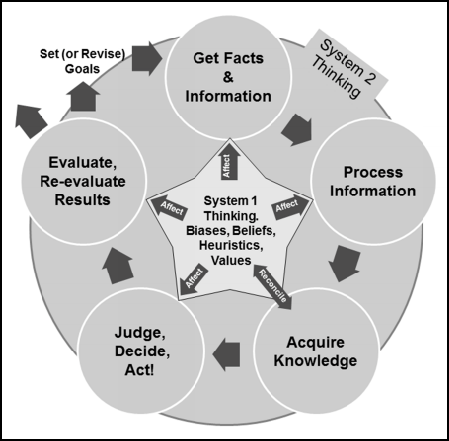Source: Earth’s Future
Although fast and intuitive thinking helped our ancestors survive and spread beyond Africa’s savannas, it frequently yields poor decisions in the modern world, especially when our knowledge conflicts with our feelings and wants. Studies show that we oversimplify, apply confirmation bias, discount what we don’t see, and often find pattern where there is none.
How best, then, can we manage our biases while acquiring information and using it to find sustainable solutions to today’s long-term, large-scale problems, such as coping with climate change and managing natural resources?
In a new study, Glynn et al. propose a new conceptual framework to help counteract our cognitive shortcomings and better manage our understanding of complex systems. This framework is designed, the authors say, to generate information, identify and account for biases, and improve the integrity of science-based policy making.

They recommend several strategies, such as (1) the gathering of a diversity of perspectives through meaningful participatory processes, (2) consideration not only of the present but also of relevant past and possible future situations, (3) the creation of independent teams to battle groupthink, and (4) transparency on all science and decision-making. The effort to recognize biases and beliefs at all stages and find ways of respectfully treating them and reconciling them with available information is essential.
Once a decision has been made, the deciding entity should detail expected outcomes and monitor the decision consequences, thus engaging in new fact finding and possibly starting a new cycle of knowledge generation and improved decision-making. The authors stress that transparency, accountability, and structured and participatory processes are hallmarks of this science-infused science and policy governance. (Earth’s Future, https://doi.org/10.1002/2016EF000487, 2017)
—Brendan Bane, Freelance Writer
Citation:
Bane, B. (2017), A framework for decisions on science and policy, Eos, 98, https://doi.org/10.1029/2017EO072383. Published on 28 April 2017.
Text © 2017. The authors. CC BY-NC-ND 3.0
Except where otherwise noted, images are subject to copyright. Any reuse without express permission from the copyright owner is prohibited.

